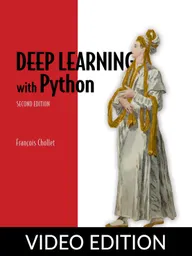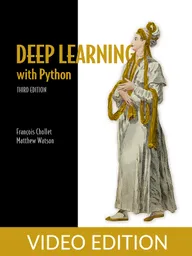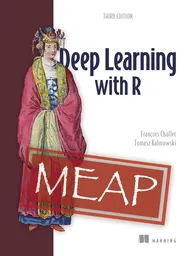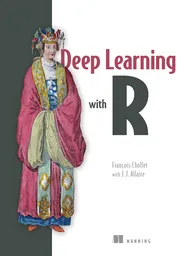books & videos by Francois Chollet
Deep Learning with Python Video Edition
Deep Learning with Python introduces the field of deep learning using the Python language and the powerful Keras library. Written by Keras creator and Google AI researcher François Chollet, this book builds your understanding through intuitive explanations and practical examples. You'll explore challenging concepts and practice with applications in computer vision, natural-language processing, and generative models. By the time you finish, you'll have the knowledge and hands-on skills to apply deep learning in your own projects.
Deep Learning with Python, Second Edition Video Edition
Deep Learning with Python, Second Edition introduces the field of deep learning using Python and the powerful Keras library. In this revised and expanded new edition, Keras creator François Chollet offers insights for both novice and experienced machine learning practitioners. As you move through this book, you’ll build your understanding through intuitive explanations, crisp color illustrations, and clear examples. You’ll quickly pick up the skills you need to start developing deep-learning applications.
Deep Learning with R, Third Edition
Deep Learning with R, Third Edition introduces R programmers to the latest advances in deep learning. In it, you’ll explore how to use Keras 3 and R to build and train deep learning models, all without advanced math or low-level programming. You’ll get started on core DL tasks like computer vision and natural language processing, and you’ll take your first steps into the world of transformers, LLMs, and the foundations of modern AI.
You’ll learn to fine-tune and evaluate your models for peak performance, and dive into advanced methods like transfer learning and model interpretability. This expanded third edition brings cutting-edge coverage of transformers, building your own GPT-style language model, and creating images with diffusion models—all in R.
Deep Learning with Python, Third Edition
Deep Learning with Python, Third Edition makes the concepts behind deep learning and generative AI understandable and approachable. This complete rewrite of the bestselling original includes fresh chapters on transformers, building your own GPT-like LLM, and generating images with diffusion models. Each chapter introduces practical projects and code examples that build your understanding of deep learning, layer by layer.
Deep Learning with R, Second Edition
Deep Learning with R, Second Edition is a hands-on guide to deep learning using the R language. As you move through this book, you’ll quickly lock in the foundational ideas of deep learning. The intuitive explanations, crisp illustrations, and clear examples guide you through core DL skills like image processing and text manipulation, and even advanced features like transformers. This revised and expanded new edition is adapted from Deep Learning with Python, Second Edition by François Chollet, the creator of the Keras library.
Deep Learning with R
Deep Learning with R introduces the world of deep learning using the powerful Keras library and its R language interface. Initially written for Python as Deep Learning with Python by Keras creator and Google AI researcher François Chollet and adapted for R by RStudio founder J. J. Allaire, this book builds your understanding of deep learning through intuitive explanations and practical examples. You'll practice your new skills with R-based applications in computer vision, natural-language processing, and generative models.






